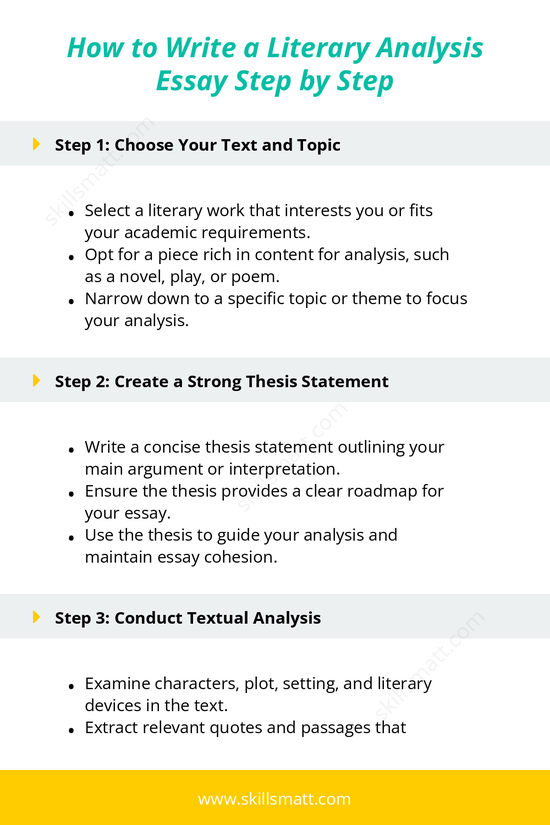How to Write a Literary Analysis Essay Step by Step
Step 1: Choose Your Text and Topic
- Select a literary work that interests you or fits your academic requirements.
- Opt for a piece rich in content for analysis, such as a novel, play, or poem.
- Narrow down to a specific topic or theme to focus your analysis.
Step 2: Create a Strong Thesis Statement
- Write a concise thesis statement outlining your main argument or interpretation.
- Ensure the thesis provides a clear roadmap for your essay.
- Use the thesis to guide your analysis and maintain essay cohesion.
Step 3: Conduct Textual Analysis
- Examine characters, plot, setting, and literary devices in the text.
- Extract relevant quotes and passages that support your thesis.
- Analyze how each element contributes to the overall meaning of the work.
Step 4: Set the Stage with Context
- Provide background information about the author and time period.
- Highlight any cultural or historical factors influencing the interpretation of the work.
- Introduce the context succinctly to orient your readers.
Step 5: Construct Analytical Body Paragraphs
- Organize analysis into focused paragraphs, each addressing a specific aspect of the thesis.
- Support arguments with evidence from the text, such as quotes or examples.
- Analyze characters, themes, and literary devices while linking back to your thesis.
Step 6: Craft a Thoughtful Conclusion
- Summarize the main points discussed in the essay.
- Restate your thesis with new insight.
- Offer final reflections on the broader implications of your analysis.


